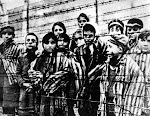In the opening pages of Into the Wild, Jon Krakauer's account of the journey undertaken by Christopher "Alexander Supertramp" McCandless, we are introduced to a young man who is in search of truth and beauty--something that he beleives can only be found in the unfettered existence and pure wilderness of the American frontier. At the end of chapter three, Krakauer does well to sum up the philosophy that inspired McCandless' break from the constraints of the "civilized world":
[...]The trip was to be an odyssey in the fullest sense of the word, an epic journey that would change everything. He had spent the previous four years, as he saw it, preparing to fulfill an absurd and onerous duty: to graduate from college. At long last he was unencumbered, emancipated from the stifling world of his parents and peers, a world of abstraction and security and material excess, a world in which he felt grievously cut off from the raw throb of existence.
Driving west out of Atlanta, he intended to invent an utterly new life for himself, one in which he would be free to wallow in unfiltered experience. To symbolize the complete severance from his previous life, he even adopted a new name. No longer would he answer to Chris McCandless; he was now Alexander Supertramp, master of his own destiny. (22-23)
In this way, McCandless voiced his protest against what he saw were the excesses of modern society, bound by an irrational reliance on money and business and industry and war and politics. Only when man ventured into the unknown, free of the illusions created by false ideals of fulfillment could he truly discover the human spirit, the God in everything.
That said, I would like you to, in a well-developed paragraph, share your initial thoughts upon reading the opening chapters of Into the Wild. Please be sure to quote the text as a way to illustrate any points you make in reference to the story. The format for doing is would be as follows: Krakauer writes, "...." (#).
This blog response is due by classtime, Wednesday, April 1, 2009.
Remember to place a heading at the top of your response:
Your Name
Bro. Rob Peach, FSC
Rel 011.04
April 1, 2009
In the meantime, please continue reading through chapter seven.
Brother Supertramp, FSC
